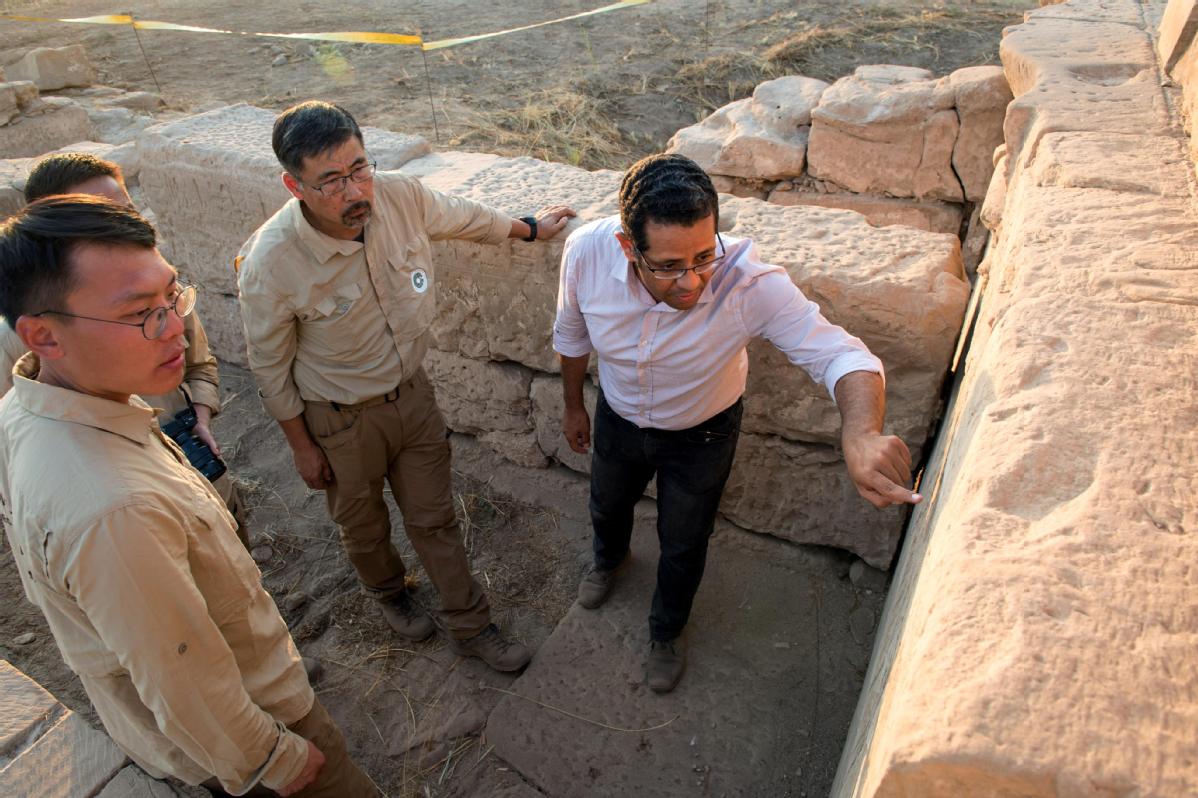Archaeologists dig deep on overseas projects
The Temple of Montu in Luxor, Egypt, has witnessed the ebb and flow of the Nile for more than 3,300 years.
As well as excavation work, the Chinese team will partially renovate the temple, which will probably open to tourists at some stage.
Chinese and Egyptian archaeologists explore the Temple of Montu site, which dates to ancient Egypt's New Kingdom period. [Photo/Xinhua]
"We want to put the stones back to their original position, based on the inscriptions on them. That takes expertise," Wang said.
He added that there are more than 10 established Egyptologists in China, but he is aware that the country is a newcomer to this work. In the two years spent preparing for the excavation, several international symposiums were organized by his institution to update the team on the most recent achievements in the field worldwide
A journalist from the United States once asked Wang, "Why does China want to have archaeologists working in Egypt?" He replied: "You (Westerners) have done work there for 200 years. Why can't we? It's a dialogue between two ancient civilizations."
For Chinese scholars, such overseas projects will benefit their studies at home.
An academic program was started in 2002 to explore early-stage Chinese civilization-searching for its unique characteristics-through comprehensive studies of archaeological sites nationwide.
"However, the more we discussed the topic, the more we felt that we lacked an in-depth understanding of other ancient civilizations," Wang said. "The project in Egypt offers an opportunity for comparative studies."
As a result, the Temple of Montu was chosen. It dates to the New Kingdom period of ancient Egypt, a contemporary of the Shang Dynasty (16th to 11th century BC) in China, which saw the earliest-known written Chinese characters and had a complicated sacrificial and ceremonial system.
"I believe that there will be many achievements (in comparative studies), based on the abundant information we have on the Shang Dynasty," Wang said.


